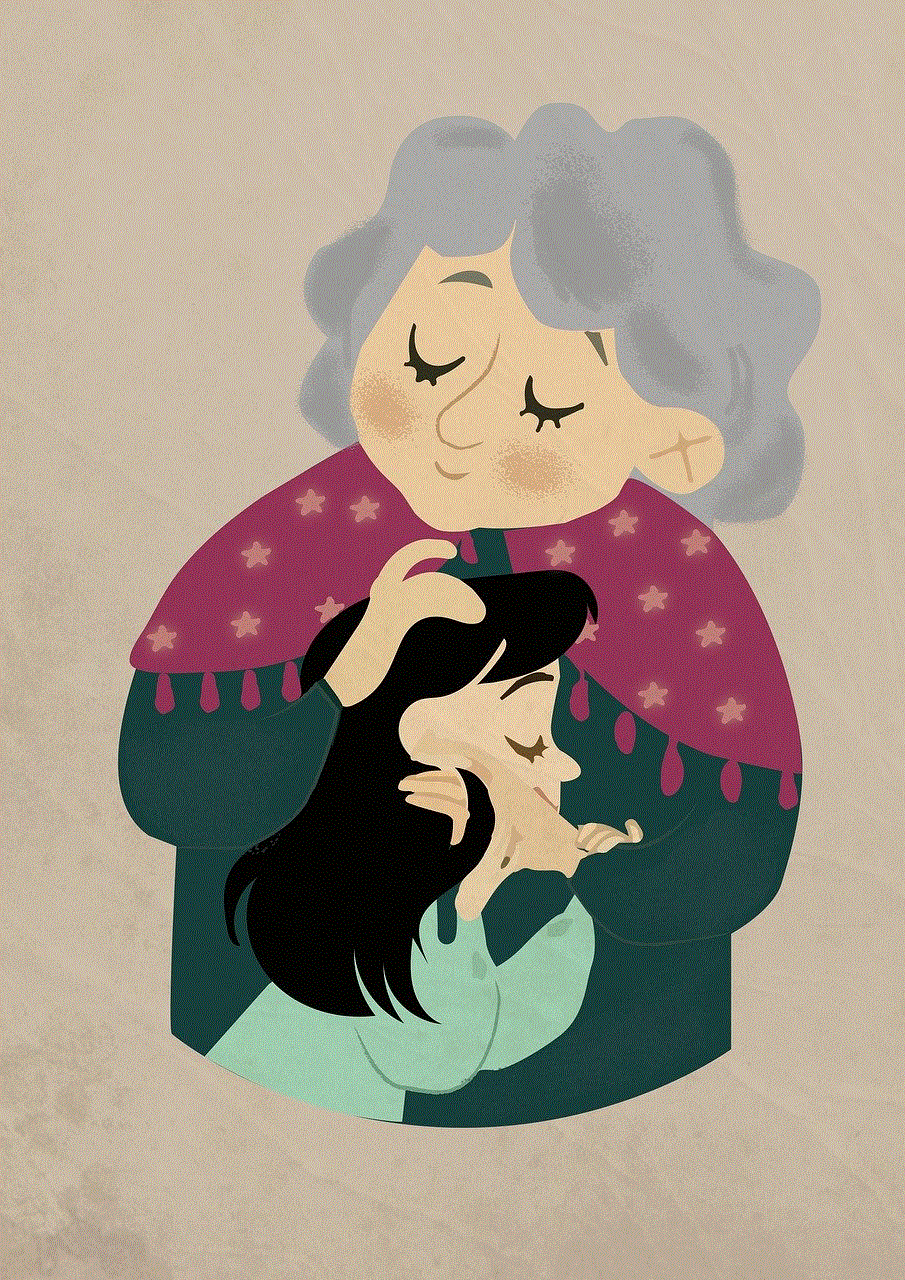how to get into someone else’s facebook
facebook -parental-controls-guide”>Facebook has become one of the most popular and widely used social media platforms in the world. With over 2.6 billion active monthly users, it has become an integral part of our lives, connecting us with friends and family, sharing our thoughts and memories, and even conducting business. However, with so much personal information and data stored on the platform, it has also become a target for hackers and individuals with malicious intent. As a result, many people are curious about how to gain access to someone else’s Facebook account. In this article, we will explore the various methods and techniques used to get into someone else’s Facebook account and the potential consequences of such actions.
First and foremost, it is important to note that gaining unauthorized access to someone else’s Facebook account is illegal and can result in serious consequences. It is considered hacking and a violation of privacy, and you can face legal charges if caught. Therefore, it is essential to understand the ethical and legal implications before attempting to get into someone else’s Facebook account.
One of the most common methods used to gain access to someone else’s Facebook account is through phishing. Phishing is a fraudulent technique used to obtain sensitive information, such as login credentials and credit card details, by pretending to be a legitimate entity. In the case of Facebook, a hacker may create a fake login page that looks identical to the original Facebook login page and send it to the victim through email or social media. The victim, thinking it is a legitimate login page, enters their login information, which is then captured by the hacker. They can then use this information to log into the victim’s Facebook account.
Another method used to gain access to someone else’s Facebook account is through social engineering. Social engineering is a technique used to manipulate people into giving out confidential information. A hacker may gather personal information about the victim, such as their date of birth, pet’s name, or mother’s maiden name, and use it to answer security questions and gain access to their Facebook account. This method is particularly effective if the victim has a weak password or uses the same password for multiple accounts.
Brute force attacks are also commonly used to get into someone else’s Facebook account. This method involves using software that automatically generates and tries different combinations of usernames and passwords until it finds the correct one. While it may take a considerable amount of time, it can be successful if the victim’s password is weak or easily guessable.
Another way to access someone else’s Facebook account is by using keylogging software. Keylogging software records every keystroke made on a computer , including login credentials. A hacker can install this software on the victim’s device, either physically or through a malicious email or download, and remotely monitor their keystrokes. This method can be challenging to detect and can provide the hacker with access to not only the victim’s Facebook account but also other sensitive information, such as bank account details.
Pharming is another technique used to get into someone else’s Facebook account. It involves redirecting the victim to a fake website that looks identical to the original Facebook site. When the victim enters their login information, it is captured by the hacker, who can then use it to log into their account. This method is particularly dangerous as it does not require the victim to click on any links or enter any information, making it difficult to detect.
Some individuals may also try to access someone else’s Facebook account by guessing their password. This method is more commonly used by people who know the victim personally, such as friends or family members. They may try to guess the victim’s password by using information they know about them, such as their date of birth, favorite sports team, or significant other’s name. However, this method is not very effective and can easily be detected by Facebook’s security measures.
There are also various tools and software available online that claim to be able to hack into someone else’s Facebook account. However, these are mostly scams and should be avoided. They may ask for personal information or payment and not provide any results, or worse, install malware on your device.
Aside from the legal consequences of hacking into someone else’s Facebook account, there are also ethical and moral implications to consider. Gaining access to someone else’s personal information without their consent is a violation of privacy and can cause significant harm to the victim. It can also damage relationships and trust, as the victim may feel betrayed and violated.
In conclusion, getting into someone else’s Facebook account is not only illegal but also unethical. There are various methods and techniques that hackers use to gain unauthorized access to someone else’s account, such as phishing, social engineering, brute force attacks, keylogging, pharming, and guessing passwords. However, it is essential to understand the ethical and legal implications of such actions before attempting to do so. Facebook also has security measures in place to protect its users, making it challenging to hack into an account successfully. It is always best to respect others’ privacy and not attempt to gain access to their personal information without their consent.
nude 20 year old girls
Nudity has been a topic of fascination for humans for centuries. From ancient Greek sculptures to modern day paintings, the human body has been portrayed in its most natural form. In the modern world, with the rise of social media and the internet, nudity has become even more prevalent. And when it comes to the topic of nudity, 20-year-old girls seem to be the center of attention. In this article, we will delve into the world of nude 20-year-old girls, exploring the reasons behind this fascination and the impact it has on society.
To begin with, let us first understand what exactly is meant by a “nude 20-year-old girl”. In simple terms, it refers to a young woman who is 20 years of age and is not wearing any clothes. This age range is significant as it is the time when a girl transitions into womanhood. It is also the time when she is at her physical prime, with her body fully developed and youthful. This combination of youth and physical perfection is what makes 20-year-old girls such an object of desire and curiosity.
But why is there such a fascination with nude 20-year-old girls? One of the reasons could be the portrayal of nudity in the media. From movies to magazines, the media often portrays young, naked women as the epitome of beauty and desirability. This creates a perception that being naked is something to be desired and that young girls are the ideal representation of this. Furthermore, the constant bombardment of sexualized images and messages in the media has desensitized society to nudity, making it seem more acceptable and normal.
Another factor that contributes to the fascination with nude 20-year-old girls is the concept of youth and beauty. In today’s society, youth and beauty are highly valued, and being young and attractive is seen as a form of currency. This obsession with youth and beauty has led to the sexualization of young girls, making them a commodity for consumption. As a result, the sight of a nude 20-year-old girl is seen as a symbol of perfection and desirability, fulfilling the societal standards of beauty and youth.
Moreover, there is a certain level of taboo associated with nudity, which makes it even more alluring. In many cultures, nudity is still considered shameful and something that should be hidden. This taboo adds an element of thrill and excitement to the idea of seeing a nude 20-year-old girl, making it a forbidden fruit that many want to taste. This forbidden aspect also fuels the curiosity and intrigue surrounding the subject.



The sexualization of young girls is not a new phenomenon. The fashion and beauty industry has been under scrutiny for promoting unrealistic and unhealthy beauty standards, especially for young girls. The pressure to conform to these standards can have a severe impact on a girl’s mental and physical well-being. The constant exposure to sexualized images can also lead to body image issues and low self-esteem, as young girls compare themselves to the idealized and airbrushed images they see in the media.
Furthermore, the fascination with nude 20-year-old girls can also have a detrimental effect on society’s perception of women. When girls are constantly portrayed as objects of desire, it reinforces the idea that their worth is solely based on their physical appearance. This can lead to a culture where women are judged and valued based on their looks rather than their intelligence, skills, and talents. It also perpetuates the idea that women exist for the pleasure and consumption of men, further objectifying and dehumanizing them.
The impact of this fascination with nude 20-year-old girls is not limited to just societal perceptions but also has legal implications. In many countries, the legal age of consent is 18 years old. By portraying and sexualizing 20-year-old girls, society is blurring the lines between childhood and adulthood, making it easier for predators to justify their actions. It also creates a dangerous precedent where young girls are seen as mature and sexually available, leading to an increase in cases of sexual exploitation and abuse.
Moreover, the objectification of young girls can also have a negative impact on their relationships and future sexual experiences. When girls are constantly bombarded with images of sexualized and perfect bodies, they may feel pressured to conform to these standards or feel inadequate. This can lead to unhealthy and unrealistic expectations in their relationships and can also affect their self-esteem and confidence in their own bodies.
In conclusion, the fascination with nude 20-year-old girls is a complex issue that stems from societal norms, media influence, and the sexualization of young girls. While nudity itself is not inherently problematic, the constant objectification and sexualization of young girls can have severe consequences on their self-esteem, relationships, and societal perceptions. It is crucial for us as a society to challenge and question these norms and strive towards a more inclusive and respectful representation of women of all ages.
tinder for 11 year olds
With the rise of technology and the widespread use of social media, it’s no surprise that there are now dating apps specifically designed for younger users. One such app is “Tinder for 11 year olds,” which has sparked controversy and concern among parents and child safety advocates.
Tinder for 11 year olds, also known as “Spotafriend,” is marketed as a way for tweens and young teens to make new friends in their area. The app uses the same swipe left or right feature as the original Tinder, where users can either like or dislike another user’s profile. If two users both like each other’s profiles, they can then chat and potentially meet up in person.
While the idea of an app for young people to make friends may seem innocent enough, many have raised concerns about the potential dangers and risks of such an app. After all, Tinder is primarily known as a dating app for adults, and the idea of 11 year olds using a similar platform raises red flags for many.
One of the main concerns is the potential for predators to target young users on the app. Despite measures such as age verification and a ban on inappropriate language and behavior, there is no way to guarantee that all users on the app are actually 11 years old. It’s also worth noting that the app’s terms of service state that users must be at least 13 years old, which is still below the legal age of consent in most countries.



Another issue that has been brought up is the potential for cyberbullying. With young users on the app, there is a higher chance of encountering cyberbullies who may use the platform to harass or bully others. This can have serious consequences for the mental health and well-being of young users.
Furthermore, Tinder for 11 year olds may also expose children to mature and inappropriate content. While the app’s terms of service prohibit users from posting explicit content, it’s not uncommon for users to lie about their age and post inappropriate photos or messages. This can be damaging to young users who may not be emotionally or mentally prepared to handle such content.
In response to these concerns, the creators of Spotafriend have stated that the app is meant to be a safe and controlled environment for young users. They claim to have strict measures in place to prevent predators and inappropriate content, and they also have a team of moderators who monitor the app for any violations.
However, many experts argue that it’s simply not possible to guarantee the safety of young users on an app like Tinder for 11 year olds. The internet is a vast and unpredictable place, and it’s impossible to completely eliminate the risk of encountering predators or inappropriate content.
Moreover, the app’s focus on physical appearance and the potential for users to meet up in person raises concerns about body image and self-esteem for young users. As with any dating app, there is pressure to present oneself in a certain way and to conform to societal standards of beauty. This can have a negative impact on young users who are still developing their sense of self and self-worth.
Aside from the safety and mental health concerns, there is also the issue of whether or not young people should be using dating apps in the first place. Dating and relationships are complex topics that are best left to mature adults who are able to make informed decisions and handle potential consequences. Introducing young children to the concept of dating through an app can be confusing and potentially harmful.
However, there are also arguments in favor of apps like Tinder for 11 year olds. For one, it allows young people to connect with others who may share similar interests and experiences. In a world where social media dominates, it can be difficult for young people to make genuine connections with others. An app like this may provide a platform for young users to find like-minded friends in their area.
Furthermore, it’s worth acknowledging that many young people are already using dating apps, whether their parents know about it or not. In this sense, an app like Tinder for 11 year olds may actually be a safer option compared to other dating apps that are intended for adults. At least with this app, there are measures in place to prevent inappropriate behavior and predators.
Ultimately, the responsibility falls on parents to monitor their child’s online activities and educate them about the potential risks and dangers of using apps like Tinder for 11 year olds. It’s important for parents to have open and honest conversations with their children about dating, relationships, and online safety.



In conclusion, the concept of “Tinder for 11 year olds” has sparked a lot of debate and controversy. While some argue that it can be a safe and controlled environment for young users to make friends, others have raised valid concerns about the potential risks and dangers involved. It’s important for parents to be aware of their child’s online activities and to have open and honest conversations about online safety. At the end of the day, the well-being and safety of young users should always be the top priority.